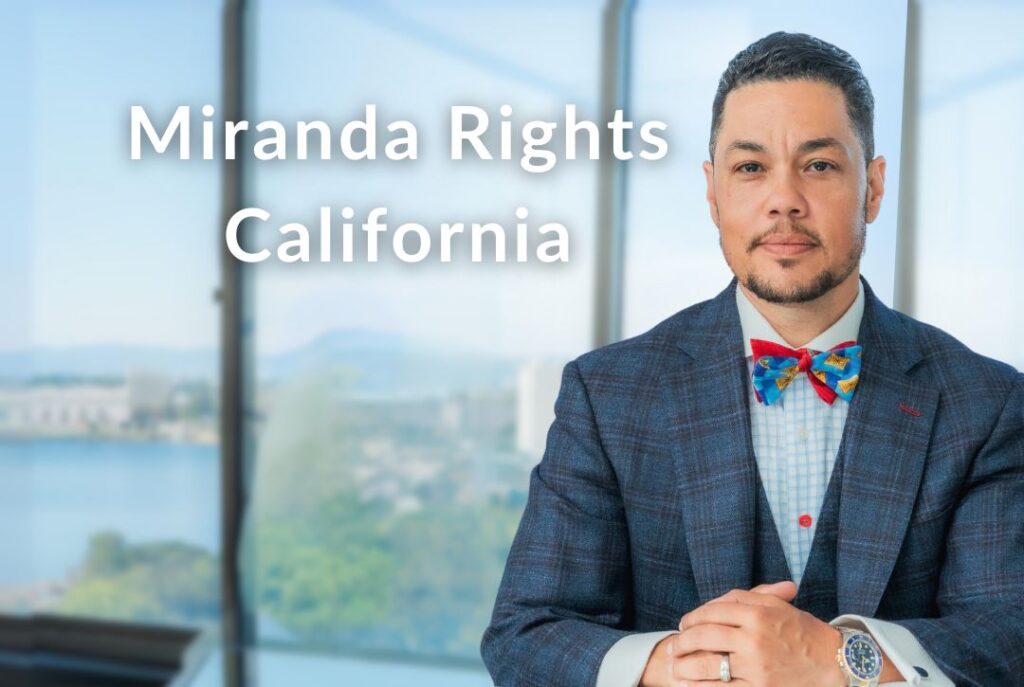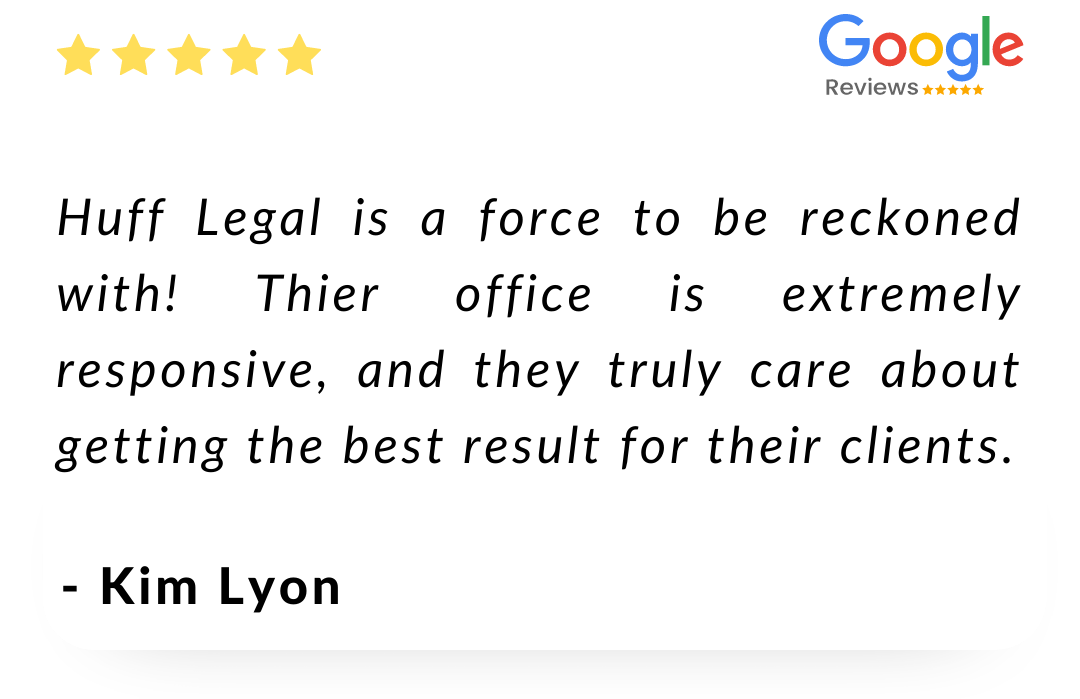Miranda Rights California: A Guide to Your Constitutional Safeguards
Miranda Rights California: A Guide to Your Constitutional Safeguards
Understanding the nuances of “Miranda rights California” is essential for protecting your legal interests. Established by the U.S. Supreme Court in 1966, these rights ensure that you are informed of your constitutional protections against self-incrimination when arrested.
However, many people are unaware that in California, police are not required to read Miranda rights at the time of arrest but only before interrogating a suspect who is in custody. This misconception can lead to confusion and potential legal issues for those who find themselves in police custody.
In this article, we’ll explore the specifics of Miranda Rights in California, including when they must be read, what they mean for you, and what to do if you believe your rights have been violated.
The Basics Of Miranda Rights
Miranda Rights are fundamental legal protections that law enforcement must provide to individuals in custody before interrogation. These rights stem from the 1966 Supreme Court decision in Miranda v. Arizona, which aimed to protect suspects from self-incrimination.
What are Miranda Rights?
Miranda Rights are a set of constitutional protections that inform you of your rights when in police custody. These rights include the right to remain silent, the right to an attorney, and the warning that anything you say can be used against you in court. It’s crucial to understand that these rights apply only when you’re in custody and about to be interrogated, not necessarily at the moment of arrest.
The Miranda Warning: What Do Police Officers Say When They Arrest Someone?
When arresting someone, police officers typically state, “You have the right to remain silent. Anything you say can and will be used against you in a court of law. You have the right to an attorney. If you cannot afford an attorney, one will be appointed for you.” However, in California, officers aren’t required to read these rights at the time of arrest, only before custodial interrogation.
Request a Free Consultation
Miranda Rights Warn the Accused: Understanding the Implications
This warning is crucial to Miranda Rights, reminding you that your statements can be used as evidence. It’s designed to protect you from unknowingly incriminating yourself during police questioning. Remember, even casual conversations with law enforcement can be used against you, so it’s often best to exercise your right to remain silent until you have legal representation.
Miranda Rights Violations in California
Miranda Rights violations in California occur when law enforcement fails to properly inform you of your constitutional rights before custodial interrogation. These violations can have significant implications for your case and your rights as a suspect.
How Can Your Miranda Rights Be Violated?
Your Miranda Rights can be violated in several ways:
- Failure to read your rights: If police interrogate you while in custody without first reading your Miranda Rights, this is a violation.
- Continuing questioning after you invoke your rights: If you ask for an attorney or choose to remain silent, but police continue to question you, this violates your rights.
- Using coercion or intimidation: If police use threats or force to make you speak, this is a violation of your Miranda Rights.
- Questioning you without an attorney present: If you’ve requested an attorney but police question you before one arrives, this is a violation.
Do the Police Have to Read the Miranda Warning at the Time of Your Arrest?
Contrary to popular belief, police are not required to read Miranda Rights at the time of arrest. They only need to read these rights before custodial interrogation. This means you can be arrested without being “Mirandized,” but police cannot question you about the crime without first reading your rights.
Miranda Rights California: Specific Situations
Miranda’s Rights apply differently in various situations. Understanding these nuances can help you protect your rights during encounters with law enforcement.
Miranda Warnings in DUI Cases
In DUI cases, Miranda Rights typically don’t apply to initial questioning during a traffic stop. Police can ask you questions about drinking without reading your rights. However, once you’re arrested and taken into custody, Miranda Rights must be read before any further questioning about the DUI.
What if You Are Questioned Without a Miranda Warning?
If you’re questioned while in custody without being read your Miranda Rights, any statements you make may be inadmissible in court. However, this doesn’t automatically dismiss your case. Other evidence can still be used against you. If you believe you were questioned without proper Miranda warnings, inform your attorney immediately.
Waiving Miranda Rights
Understanding the concept of waiving Miranda Rights is crucial for protecting yourself during police interactions.
Can Miranda Be Waived?
Yes, Miranda Rights can be waived. If you choose to speak to police after being read your rights, you’re essentially waiving those rights. However, you can invoke your right to remain silent or request an attorney at any time during questioning, even if you initially waived your rights.
What is a Waiver?
A Miranda waiver is when you voluntarily give up your right to remain silent or have an attorney present during questioning. It can be done verbally or in writing. It’s important to understand that waiving your rights can have serious consequences.
Anything you say after waiving your rights can be used against you in court. Always consider carefully before waiving your Miranda Rights, and when in doubt, exercise your right to remain silent and request an attorney.

As Seen On












Consequences of Miranda Rights Violations
When your Miranda Rights are violated, it can significantly impact your case. Understanding these consequences is crucial for protecting your legal rights and ensuring fair treatment in the criminal justice system.
What Happens if Your Rights Are Violated?
If your Miranda Rights are violated, the immediate consequence is that any statements you made during the unlawful interrogation may be deemed inadmissible in court. This means:
- Suppression of evidence: Your Huff Legal attorney can file a motion to suppress any statements obtained in violation of your Miranda Rights.
- Weakened prosecution case: Without these statements, the prosecution’s case against you may be significantly weakened.
- Potential for civil rights lawsuit: In some cases, you may have grounds for a civil rights lawsuit against the law enforcement agency.
Will Your Criminal Case Be Dismissed Over Miranda Violations?
A Miranda violation doesn’t automatically result in case dismissal. Here’s what you need to know:
- Case-by-case basis: The impact of a Miranda violation on your case depends on the specific circumstances and the importance of the suppressed evidence.
- Other evidence: If the prosecution has other strong evidence against you, the case may proceed even without your statements.
- Partial dismissal: In some cases, certain charges might be dismissed if they relied heavily on the suppressed statements.
Can You Still Be Convicted of a Crime?
You can still be convicted even if your Miranda Rights were violated. Here’s why:
- Other evidence: The prosecution may have enough other evidence to secure a conviction without your statements.
- Physical evidence: Miranda violations don’t typically affect physical evidence collected in the case.
- Witness testimony: Other witnesses or victims may still testify against you.
What Clients Say About Us





Schedule Your Free Consultation Today
Protecting Your Miranda Rights
Knowing how to protect your Miranda Rights is essential for safeguarding your legal interests during interactions with law enforcement. At Huff Legal, we’re dedicated to ensuring your rights are protected every step of the way.
Protecting your Miranda Rights is crucial for ensuring fair treatment in the criminal justice system. At Huff Legal, we’re here to stand by your side, defend your rights, and fight for the best possible outcome in your case.
Don’t face these challenges alone – contact Huff Legal today for expert legal representation you can trust.
FAQ
What is the full Miranda rights saying?
The full Miranda rights typically state: “You have the right to remain silent. Anything you say can and will be used against you in court. You have the right to an attorney. If you cannot afford an attorney, one will be appointed for you.” Some variations may include additional information about waiving these rights.
Why is it called the Miranda rights?
Miranda rights are named after the 1966 U.S. Supreme Court case Miranda v. Arizona. In this landmark decision, the court ruled that suspects must be informed of their constitutional rights before police interrogation. The name comes from Ernesto Miranda, the defendant in the case.
Can a cop handcuff you without reading your rights?
Yes, a police officer can handcuff and arrest you without reading your Miranda rights. Miranda rights are only required before custodial interrogation, not during arrest. However, if they want to question you about the crime while you’re in custody, they must read you your rights first.
What are the Miranda rights basics?
The Miranda rights basics include the right to remain silent and the right to an attorney. They inform suspects that anything they say can be used against them in court and that if they cannot afford an attorney, one will be provided for them. These rights protect individuals from self-incrimination during police interrogation.
LET HUFF HELP YOU
As a former police officer and patrol supervisor and his time spent as a United States District Court Judicial Law Clerk to the Chief Judge, Attorney Huff knows how to navigate all levels of the complex criminal law system. We also have more than 55 years of combined experience dealing with various complex criminal legal matters and have helped just over 1,500 clients over the past few years.
Why Huff Is Your Best Option For Criminal Defense
55+ Years of Combined Experience
At Huff Legal, we have more than 55 years of combined experience dealing with complex criminal legal matters, which can oftentimes be quite challenging. In order to get the outcome you deserve, you need a team of experienced attorneys on your side, who can help you navigate the legal system, so you can move past this situation and focus on the life ahead of you!
5 Star Rating on Google
We have a proven track record of success and are dedicated to our clients’ best interests. If you’re looking for a law firm that will always have your back, look no further than Huff Legal. Just have a look at some of our amazing client reviews over here!
1,500+ Happy Clients
Over the years, we’ve had the privilege of helping over 1,500 clients with their legal needs. When you work with us, you can be confident that you’re getting the best possible legal representation. We’re proud of our track record and our reputation for being a firm that delivers great results.
What Our Clients Say About Us


Sheila


Abel Resendiz


Manuela Frazier


Doris
Contact Huff Today
Request A Free Consultation
* Free consultations only available for Criminal Defense


In legal terms, an accessory to murder refers to an individual who aids, abets, or otherwise assists in committing a murder. While the specifics may vary across jurisdictions, California law treats accessories to murder as active participants in the crime, holding them accountable for their actions. In San Francisco Bay Area, there are two primary types of accessories to murder:
In the event that you find yourself in the Bay Area facing accessory to murder charges, you should first call a criminal defense attorney who can help you defend your rights and lessen the effects of the investigation. Contact an attorney at Huff Legal as soon as possible following your arrest. An accomplished attorney from Huff Legal will thoroughly examine your case, who will then develop a strategy and build a defense.
